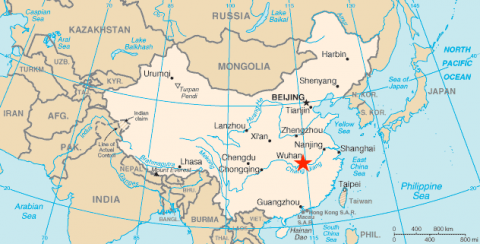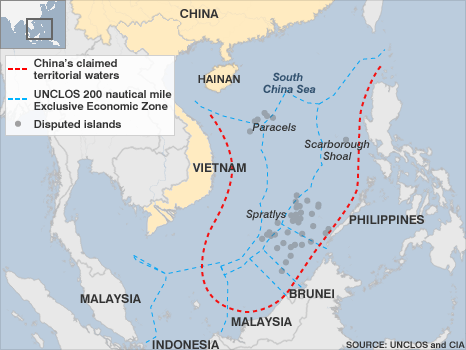World War Two
Published 4 Apr 2020The British thought they would be safe for a while, but this week they are proven wrong. This week, Erwin Rommel begins his advance towards the East of North Africa.
Join us on Patreon: https://www.patreon.com/TimeGhostHistory
Or join The TimeGhost Army directly at: https://timeghost.tvFollow WW2 day by day on Instagram @World_war_two_realtime https://www.instagram.com/world_war_t…
Between 2 Wars: https://www.youtube.com/playlist?list…
Source list: http://bit.ly/WW2sourcesWritten and Hosted by: Indy Neidell
Produced and Directed by: Spartacus Olsson and Astrid Deinhard
Executive Producers: Bodo Rittenauer, Astrid Deinhard, Indy Neidell, Spartacus Olsson
Creative Producer: Joram Appel
Post-Production Director: Wieke Kapteijns
Research by: Indy Neidell
Edited by: Iryna Dulka
Map animations: Eastory (https://www.youtube.com/c/eastory)Colorizations by:
– Daniel Weiss
– Dememorabilia – https://www.instagram.com/dememorabilia/
– Julius Jääskeläinen – https://www.facebook.com/JJcolorization/
– Adrien Fillon – https://www.instagram.com/adrien.colo…
– Norman Stewart – https://oldtimesincolor.blogspot.com/
– Olga Shirnina, a.k.a. Klimbim – https://klimbim2014.wordpress.com/
– Owen Robinson – https://www.instagram.com/owen.colori…Sources:
– National Portrait Gallery
– Narodowe Archiwum Cyfrowe
– Bundesarchiv
– Yugoslav military maneuvers at Torlak, 1940, by Boksi from Wikimedia
– US Holocaust Memorial Museum
– Војни архив
– Documents icon by Srinivas Agra from the Noun ProjectArchive by Screenocean/Reuters https://www.screenocean.com.
A TimeGhost chronological documentary produced by OnLion Entertainment GmbH.
April 5, 2020
Rommel Storms Into North-Africa – WW2 – 084 – April 4, 1941
China’s geostrategic box
ESR looks at the concerns that China may be considering starting a war with the United States in the wake of the Wuhan Coronavirus:
To understand how limited the PRC’s war options are, we can start with a grasp on how difficult and unsatisfying any war of conquest would be due to the geographic box China is in. The obstacles around it are formidable.
To the south, the Himalayan massif makes all of South Asia other than a narrow coastal plain on the Southeast Asian peninsula inaccessible to serious troop movements. There are no roads or rail links. The last time the Chinese tried pushing in that direction, in 1979, they were unable to sustain an offensive at any distance from their railheads and withdrew after less than a month. Their war aim – forcing the North Vietnamese to withdraw its troops from Cambodia – failed.
To the west, the vastness and comparatively undeveloped state of China’s western hinterland is a serious logistical problem before one even gets to the border. At the borders, the Tien Shan and Pamir ranges present a barrier almost as formidable as the Himalayas. External road and rail links are poor and would be easily interdicted.
To the north, movement would be easier. It might be just within logistical possibility for the PLA to march into Siberia. The problem with this idea is that once you’ve conquered Siberia, what you have is … Siberia. Most of it, except for a small area in the south coastal region of Primorsky Kraye, is so cold that cities aren’t viable without food imports from outside the region. Set this against the risks of invading a nuclear-armed Russia and you don’t have a winning proposition.
To the east is the South China Sea. The brute fact constraining the PRC’s ambitions in that direction is that mass movement of troops by sea is risky and difficult. I recently did the math on Chinese sealift craft and despite an expensive buildup since the 1980s they don’t have the capacity to move even a single division-sized formation over ocean. Ain’t nobody going to take Taiwan with one division, they’ve has too much time to prepare and fortify over the last 60 years.
The PRC leadership is evil and ruthless, but it’s also cautious and historically literate and can read maps. Accordingly, the People’s Liberation Army is designed not to take territory but to hold the territory the PRC already has. Its mission is not conquest but the suppression of regional warlordism inside China itself. The capability for the PLA to wage serious expeditionary warfare doesn’t exist, and can’t be built in the near-term future.
It’s often said that the danger of aggressive war by China is a function of the huge excess of young men produced by covert sexual selection and the one-child policy. But to expend those young men usefully you need to get them to where they can fight and are motivated by some prospect of seizing the wives unavailable for them at home. The PRC can’t do that.
The military threat from China is, therefore, a function of what it can do with its navy, its airpower, and its missiles. And what it can do with those against the U.S. is upper-bounded by the fact that the U.S. has nuclear weapons and would be certain to respond to a PRC nuclear or EMP attack on the U.S. mainland by smashing Chinese cities into radioactive rubble.
Within the constraints of conventional warfare waged by navy and air force it is difficult to imagine an achievable set of PRC war aims that gains more than it costs.
It’s possible — even likely — that the Chinese military has something like the oft-rumoured “ship-killer missiles” that might be able to cripple or sink an American carrier … if it was in range. That makes the South China Sea, the East China Sea, and the west coast of Japan a possible no-go area for US Navy carrier strike groups. A good defensive weapon system to have on hand in case relations with the outside world go “hot”, but not a strategic game-changer. Nobody would be likely to consider anything as dangerous as a seaborne invasion of mainland China, even without the threat of wonder weapons like the ship-killer. And good defensive weapons won’t secure the trade routes that China depends on outside coastal waters.
In a lot of ways your strategic situation is like a scaled-up version of Japan’s in 1941 – you could seize the initiative with a Pearl-Harbor-like initial shock, but you can’t wage a long war because without sealane control you’ll run out of key feedstocks and even food rather rapidly. And unlike the Japanese in 1941, you don’t have the kind of serious blue-water navy that you’d need for sealane control outside the First Island Chain – not with just two carriers you don’t.
There is one way an aggressive naval war could work out in your favor anyway. You can count on the U.S.’s media establishment to be pulling for the U.S. to lose any war it’s in, especially against a Communist or Socialist country. If your war goals are limited to ending U.S. naval power projection in the Western Pacific, playing for a rapid morale collapse orchestrated by agents of influence in the U.S. is not completely unrealistic.
It’s playing with fire, though. One problem is that before you launch your attack you don’t know that your sucker punch will actually work. Another is that, as the Japanese found out after Pearl Harbor, the American public may react to tragic losses with Jacksonian fury. If that happens, you’re seriously screwed. The war will end with your unconditional surrender, and not sooner.
Update: Bone-headed typo in the headline fixed. It’s funny how you can’t see ’em until just after you click the Save button…
Molotov’s Cocktails – Here’s the thing…
TimeGhost History
Published 4 Apr 2020A lighter, musical look at the Molotov-Ribbentrop Pact by Indy Neidell.
Join us on Patreon: https://www.patreon.com/TimeGhostHistory
A TimeGhost chronological documentary produced by OnLion Entertainment GmbH.
Ontario premier Doug Ford surprises many observers – “Wasn’t this guy supposed to be Canada’s Donald Trump?”
Chris Selley on the surprisingly solid performance of Ontario premier Doug Ford during the Wuhan Coronavirus epidemic response:

Ontario premier Doug Ford as new Progressive Conservative leader at the 2014 Good Friday procession in East York, Canada.
Photo via Wikimedia.
The premier has attracted much praise for his performance during this crisis, and it is deserved. His last misstep was advising families to head off on March Break as planned, viruses be damned, but that might as well have been 100 years ago. We were all clutching at optimism. Former premier Kathleen Wynne, who clearly understands Ford, graciously said she heard a man “trying to calm the waters … out of the goodness of his heart.”
Since then Ford has struck the right tone: often visibly alarmed, but calm, scripted and plain of speech. He has been gracious to everyone on the right side of the fight, from doctors and nurses to supermarket clerks and frantic, unemployed people stuck at home, to Prime Minister Justin Trudeau, to his fellow premiers of all political stripes, and even to journalists. And he has been galvanizingly withering to those on the wrong side, most notably a few price-gouging businesses who have been helpful enough to offer themselves up as common enemies.
More than a few people have remarked: “Wasn’t this guy supposed to be Canada’s Donald Trump?”
Indeed, once upon a time, those comparisons flew thick and fast. But they were always absurd — a toxic by-product of the Canadian media’s mortifying obsession with all things American. No First World politician is remotely like Donald Trump. I have filed many thousands of words over the past decade on what I view as Doug Ford’s inadequacies as a politician, and it would never have occurred to me to compare him to such a transparently awful president.
Ford, too, has levelled many vastly over-the-top accusations against his opponents. But he has basically set them all aside now. While federal Conservatives continue battling federal Liberals on the carbon tax file, Ford has refused to discuss it and happily applauds the feds’ anti-coronavirus efforts. Where once Ford railed at his media critics, now he praises their efforts covering the crisis and informing Ontarians. His relatively plain talk is noticeably more reassuring than the messaging some other Canadian heads of government, who fancy themselves far more polished, are dishing out — Trudeau in particular.
Book Review: The Martini Henry, For Queen and Empire
Forgotten Weapons
Published 8 Dec 2019Get your copy direct from IMA: https://www.ima-usa.com/products/the-…
Or from Amazon here: https://amzn.to/2O7ZGOY
Don’t miss Alpinshaw’s own website: http://www.martinihenry.org
One of the perennial challenges facing authors of firearms reference books is balancing the very technical nit-pickery with the broad historical view of a gun and its context in world events. The emphasis is usually tending towards the technical, but Neil Alpinshaw has done an excellent job of balancing the two, and made the development of the Martini-Henry an engaging story at the same time (a rare feat in this genre!). His new book The Martini-Henry: For Queen and Empire mixes vivid descriptions of British troops fighting across the far-flung corners of the world with their trusted Martinis with a history of the development and modernization of the rifles (and carbines).
Most interesting to me personally was the section on the Martini-Enfield, which was to be the improved version of the Martini-Henry. Chambered for a smaller-bore .402 caliber cartridge and fitted with sights for rapid close-in combat as well as long-range volley fire and sporting a quick-loading magazine attached to the receiver, this is a fascinating look at the highest evolution of the single-shot black-powder military rifle. Its development was dashed by the bolt action Lee and the development of smokeless powder, and the many thousands initially produced were converted into other patterns before seeing service.
Aspinshaw also tackles many of the long-standing myths about the Martini, and particularly its weaknesses. He takes his information directly from period investigations and after-action reports, and avoids the common hearsay. He does not let his own personal passion for the subject prevent him from articulating the true problems the rifles had, but clears away the misconceptions that have become prevalent (like the impossible-to-open ammunition boxes).
Published by International Military Antiques, the cover price is $60, and it is worth every penny for anyone interested in the grand Victorian British Empire or the Martini as a firearms family.
http://www.patreon.com/ForgottenWeapons
Cool Forgotten Weapons merch! http://shop.bbtv.com/collections/forg…
Contact:
Forgotten Weapons
6281 N. Oracle #36270
Tucson, AZ 85704
QotD: The fear of “becoming” your job
In fact, “losing ourselves in the part” used to be our big worry. Maybe I am just a customer service rep …? The office, the commute, my neckties all laid out for me at the start of each week … is that really all there is to life? What happens when the long nights start taking their toll — as they must — and I have to give up the bar band? What happens when the kids grow up?
You could see this worry everywhere in our culture, our art. Watch Fast Times at Ridgemont High. Judge Reinhold’s character is wrestling with this type of question, and he’s in high school, fer chrissakes. See what I mean about that movie being made on Mars? Remember that; it’ll be on the final.
There’s a certain type of person, though, who just couldn’t grok those worries, because the very notion of social roles was incomprehensible. We didn’t know about the autism spectrum back then, but that’s what that type of person effectively is: A high-functioning autistic. For the autistic, what’s now is forever. Bob’s nametag says “customer service representative.” Therefore, Bob is a customer service representative, and only a customer service representative, now and forever. Bob the family man, Bob the stamp collector, Bob the bar-band strummer … all those fry the autistic’s circuits. It says “customer service representative,” damn it! The train is fine.
Two sides of the same coin. Normal people were worried that they were becoming their jobs. The autistics couldn’t grasp that anyone could be anything else.
The autistics all went into the ivory tower, which gave us identity politics. “Identity politics” only makes sense to the autistic — that is, to people who can’t process change. Normal people have such a hard time with it because we can’t see the logical connection between, say, being gay and being pro-abortion. I mean, if you’re gay it’s a moot point, right? Nor is there any logical connection between being gay and favoring redistributive economics, or worrying about global warming, or whatever. Maybe you do believe in redistributive economics and are worried about global warming, but those are just individual opinions, right? I’m not obliged to vote Republican because I dig blondes. It’s a non sequitur.
Not to the autistic, it isn’t. They’re told that this — pro-abortion, being “green,” the whole Liberal schmear — just is gayness, and they go with it, because that’s the only way the world makes sense to them. Just how “gay” came to mean all that is above my pay grade, but we all know it’s true. More importantly, we all know they believe it, with all their hearts and souls.
That’s the situation in which we find ourselves, my young friends, here in the Current Year. Most of us would like to be team players, but we have no role models. Because the autistics control the culture, we’ve internalized their worries. If I’m a member of the team, we instinctively feel, then somehow I am the team, and only the team, now and forever. It’s a stark choice: Either I give up my individuality completely to advance the team’s goals, or I take my ball and go home.
But it’s a false choice, kameraden, one that could only be beaten into us by very long, very expensive training — i.e. the American “education” system, K-thru-PhD.
Severian, “Advice to Young Dissidents”, Rotten Chestnuts, 2020-04-01.








